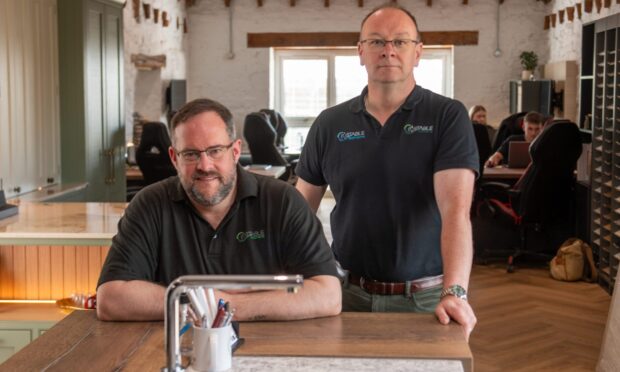After a turbulent 18 months the Chancellor was at pains to point out that his Autumn Budget and Spending Review did not “draw a line” under Covid-19 but he painted a positive picture of the economic outlook, with the recovery progressing more quickly than expected, high employment levels, and borrowing and debt declining.
This Budget, he stated, would “begin the work of preparing for a new economy”.
The good news for Dundee’s economic recovery and its key sectors of life sciences, energy, electronics and the creative industries, is that measures to boost innovation were a strong focus of the fightback, says Andrew McMillan of Johnston Carmichael.
Here, tax director Andrew discusses the Autumn Budget in detail:
With a target of growing annual R&D (research and development) investment to £22bn by 2026/27, the Chancellor said the Government would ensure that innovative businesses have access to the correct funding, regardless of where they are located in the UK, as well as the required talent.
R&D tax relief schemes
As part of this, his statement contained some significant announcements in relation to the R&D tax relief schemes, following a review introduced by the Spring Budget. Chief among these is the introduction of a new territorial restriction, similar to regulations that exist in other countries including the US, limiting R&D tax relief to innovation “in the UK”.
UK companies claimed tax relief on £47.5bn of R&D expenditure in 2019, but the Office for National Statistics (ONS) estimates that businesses only carried out £25.9bn of privately-financed R&D in the UK.
Part of this gap is thought to arise from claims for R&D activities that took place outside the UK. For businesses with overseas operations or staff this move could have considerable impact. As ever, the devil will be in the detail.
Data and cloud computing
Much more welcome was the extension of qualifying expenditure to include data and cloud computing costs.
At present R&D tax relief is available for traditional “licenced” software. However, this fails to reflect the growing shift away from systems stored on in-house physical servers towards software leased and accessed via the cloud, which allows companies greater flexibility.

Similarly, the current regime does not account for the growing importance of the use of data within modern R&D in many areas. As datasets, such as genomics information from medical samples can be extremely expensive, this could make a big difference – especially businesses operating in the life sciences space.
It will be interesting to see how the boundaries of these new cost categories will be drawn.
Tax relief for video game start-ups?
We were pleased to see a commitment to tackle abuse of, and improve compliance with, the R&D tax relief schemes as their well-publicised exploitation represents a threat to the long-term viability of this important relief.
Whilst there was support for some of the creative industries, there was no mention of the tax relief available to video game development companies. Dundee has a long history of producing some of the most innovative and successful games companies in the world, with the likes of 4J Studios, Outplay Entertainment and Tag Games still present and flourishing in the city.
Nevertheless, even these successful companies had to start somewhere. It would have been nice to see an enhancement to the relief available for early-stage video games development companies with a view to continuing the pipeline of world leading content produced by UK games companies.
Investment schemes?
Notable by their absence were any updates to the Seed Enterprise Investment Scheme (‘SEIS’), Enterprise Investment Scheme (‘EIS’) and Venture Capital Trust (‘VCT’) scheme, which enable investors to put funding into early-stage risky businesses.
There is room for improvement to these schemes, for example an increase in the SEIS allowances from £150,000 to £250,000 or even a temporary increase in rates of income tax relief available, but nothing was forthcoming.
The EIS Sunset Clause – with income tax relief available under the scheme set to expire in 2025, did not get a mention either, but this could feature in a future Budget.
An economy built on innovation
Last but not least, a new Scale Up Visa is set to be introduced that could be a helping hand for fast-growing businesses struggling to find the right people following Brexit.
Explaining the plans, the Chancellor said that an economy built on innovation had to be open and attractive to the “best and brightest minds”. With the details yet to be published, only time will tell if this scheme can help meet local skills needs and boost Dundee’s economic recovery.
For more information, please visit Johnston Carmichael’s website.










